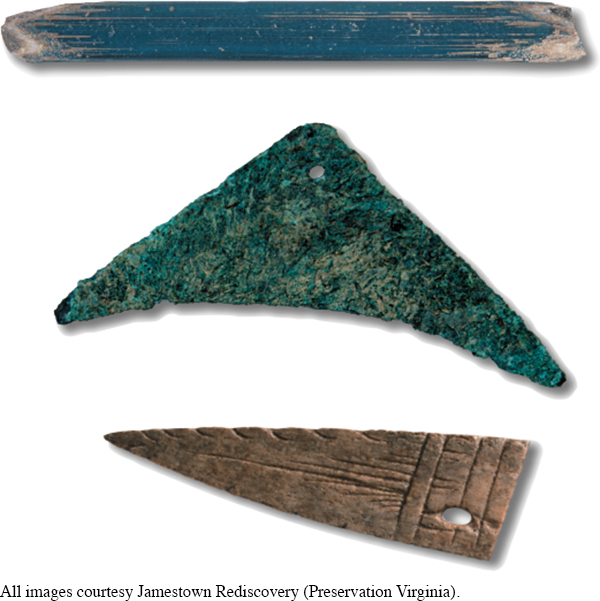The American Promise: Printed Page 56
The American Promise, Value Edition: Printed Page 52
The American Promise: A Concise History: Printed Page 61
From Private Company to Royal Government
In the immediate aftermath of the 1622 uprising, the survivors became demoralized because, as one explained, the “massacre killed all our Countrie . . . [and] burst the heart of all the rest.” The disaster prompted a royal investigation of affairs in Virginia. The investigators discovered that the appalling mortality among the colonists was caused more by disease and mismanagement than by Indian raids. In 1624, King James revoked the charter of the Virginia Company and made Virginia a royal colony, subject to the direction of the royal government rather than to the company’s private investors, an arrangement that lasted until 1776.
The king now appointed the governor of Virginia and his council, but most other features of local government established under the Virginia Company remained intact. In 1619, for example, the company inaugurated the House of Burgesses, an assembly of representatives (called burgesses) elected by the colony’s inhabitants. Under the new royal government, laws passed by the burgesses had to be approved by the king’s bureaucrats in England rather than by the company. Otherwise, the House of Burgesses continued as before, acquiring distinction as the oldest representative legislative assembly in the English colonies. Under the new royal government, all free adult men in Virginia could vote for the House of Burgesses, giving it a far broader and more representative constituency than the English House of Commons.

The American Promise: Printed Page 56
The American Promise, Value Edition: Printed Page 52
The American Promise: A Concise History: Printed Page 61
Page 57The demise of the Virginia Company marked the end of the first phase of colonization of the Chesapeake region. From the first 105 adventurers in 1607, the population had grown to about 1,200 by 1624. Despite mortality rates higher than the worst epidemics in London, new settlers still came. Their arrival and King James’s willingness to take over the struggling colony reflected a fundamental change in Virginia. After years of fruitless experimentation, it was becoming clear that English settlers could make a fortune in Virginia by growing tobacco.
REVIEW Why did Powhatan behave as he did toward the English colonists?